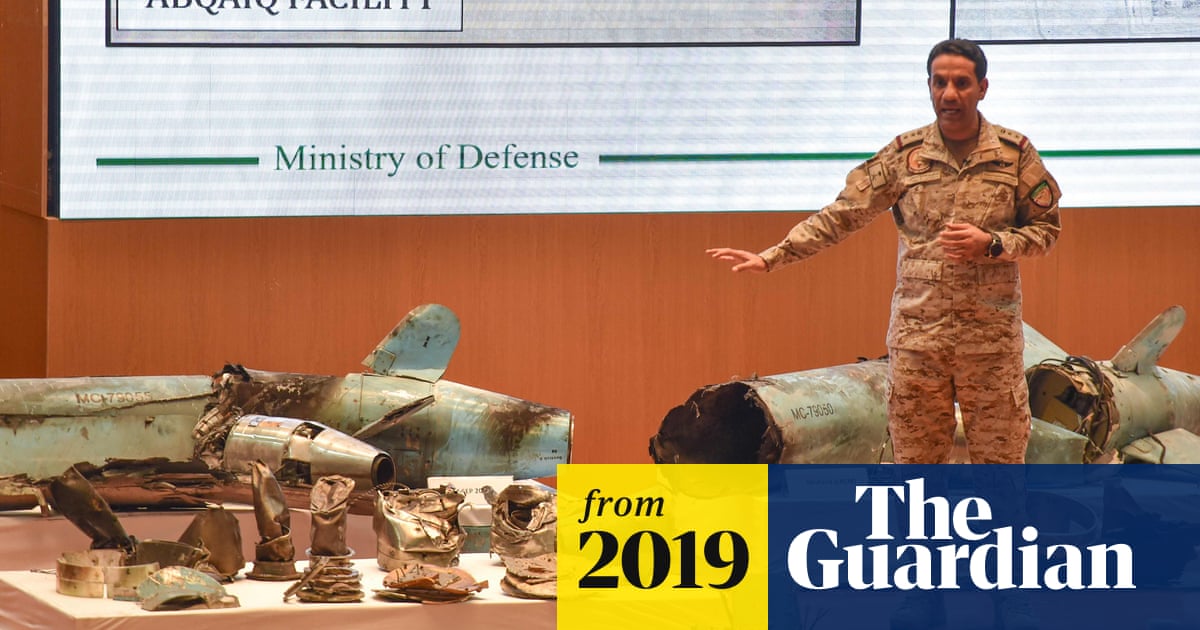Iran's Strategy Behind the Saudi Attack
By
Lieutenant General Raymond V. Mason, USA (ret.)
September 20, 2019
A possible Iranian link to the attack on a Saudi oil installation this past weekend is the latest example of Iran’s continued ability to threaten American interests in the Middle East despite robust U.S. sanctions. While the administration is applying maximum economic pressure, sanctions alone will not force Iran to the table and are insufficient to address resulting Iranian retaliation. Therefore, the Trump administration must use the full array of U.S. power: economic, diplomatic, informational, and, if required, military means.
Without the ability to gain economic or diplomatic leverage, Iran is increasingly responding to sanctions with military provocations. Therefore, the administration’s sanctions are not changing Iran’s behavior, and there is little hope of bringing Iran to the table or collapsing the regime. Instead, the administration should seek to amplify the success of its sanctions with an equally strong deterrent posture that removes Iran’s ability to vent their frustration and drives them towards negotiations on their nuclear program.
Last month, Secretary of State Pompeo
doubled down on his previous
twelve demands for a
comprehensive future deal over Iran’s nuclear, missile, proxy force development, and human rights violations.
Despite Pompeo's merging of these issues, each of Iran's threats does not have the same level of importance or immediacy of concern to U.S. national security. The U.S. should focus on Iran's nuclear program, as the most pressing demand, while building upon these negotiations to address later less time-sensitive issues.
Iran’s recent nuclear escalation and military provocations are an attempt to increase its leverage over the Americans and Europeans by threatening future aggression. Iran’s provocative military actions in the Gulf of Oman and Persian Gulf show that it remains willing to use military force in response to increased pressure. The Iranians will make reasonable concessions only when they are convinced that they cannot improve their negotiating position through continuing these low-threshold provocations.
However, President Trump’s reticence to respond with a credible deterrent force to reduce and then prevent Iran’s provocative actions prevents his administration from exerting “maximum pressure” on Iran. It is important that the U.S. quickly establish a strong military deterrent posture towards Iran, not as a pretext for escalating to war, but as a clear message to Iran that their most likely avenue towards sanctions relief is through diplomatic negotiations and not ill-advised military actions. A credible deterrent posture will give the U.S. diplomatic leverage not only with the immediate nuclear issue but also with later negotiations by compelling Iran to choose diplomatic solutions.
Sanctions are an important motivation, but equally important is an unambiguous deterrent force that undercuts the Iranian military pride fundamental to the regime’s revolutionary mindset and propaganda messaging.
Now that Iran has again increased its uranium stockpile and enrichment levels, the U.S.’s policy should prioritize convincing Iran to resume compliance with the JCPOA restrictions by immediately reversing its recent nuclear expansion.
Without increased trade with Europe, Iran is threatening to launch
more drastic measures that could include increasing its uranium enrichment to nearly twenty percent, reinstalling centrifuges or connections between centrifuges that it removed under the JCPOA, or withdrawing from the Non-Proliferation Treaty altogether.
To preempt Iran from taking these more permanent actions, the administration should explore direct talks with the Iranians to rollback their recent nuclear development.
As a means of jumpstarting negotiations, the U.S. should consider launching back-channel communications that would conditionally resume the export waivers that allow Iran to remove excess uranium and heavy water if Iran agrees to reduce its stockpiles to JCPOA levels and discuss further nuclear restrictions.
However, the U.S. must not reward Iran for its dangerous and destabilizing behavior. The U.S. must condition this temporary relief on Iran, making substantive and verifiable progress towards resolving its other aggressive actions.
Once Iran begins to reduce its uranium stockpiles, Trump can build upon this deal-making momentum to improve upon the Obama Administration’s agreement. Having demonstrated their propensity to hide their nuclear weapons program and test the limits of the JCPOA, the U.S. should seek to expand international inspections of Iran’s nuclear program, beyond the JCPOA’s insufficient oversight.
Instead of seeking an immediate end to Iran’s proliferation of ballistic missiles, the U.S. should rather focus on negotiating limitations on the ranges of Iran’s missiles and ensuring oversight to prevent Iran from proliferating them to proxy forces throughout the Middle East.
In the interim, the growing anti-Iran maritime coalition patrolling the Persian Gulf should cause Iran to question its ability to capture another oil tanker. Increasing the presence of U.S. Navy cruisers and destroyers with missile defense capabilities in the Middle East would also dramatically raise deterrence against Iranian ballistic missile testing.
When he withdrew from the JCPOA and re-instituted sanctions, Trump's goal was a wide-ranging "better deal" with Iran. It is not too late for the president to redefine and focus his strategy, getting the U.S. a 'great deal' with Iran, albeit not a perfect one.
Lieutenant General Raymond V. Mason, USA (ret.) is the former Deputy Chief of Staff for Logistics



